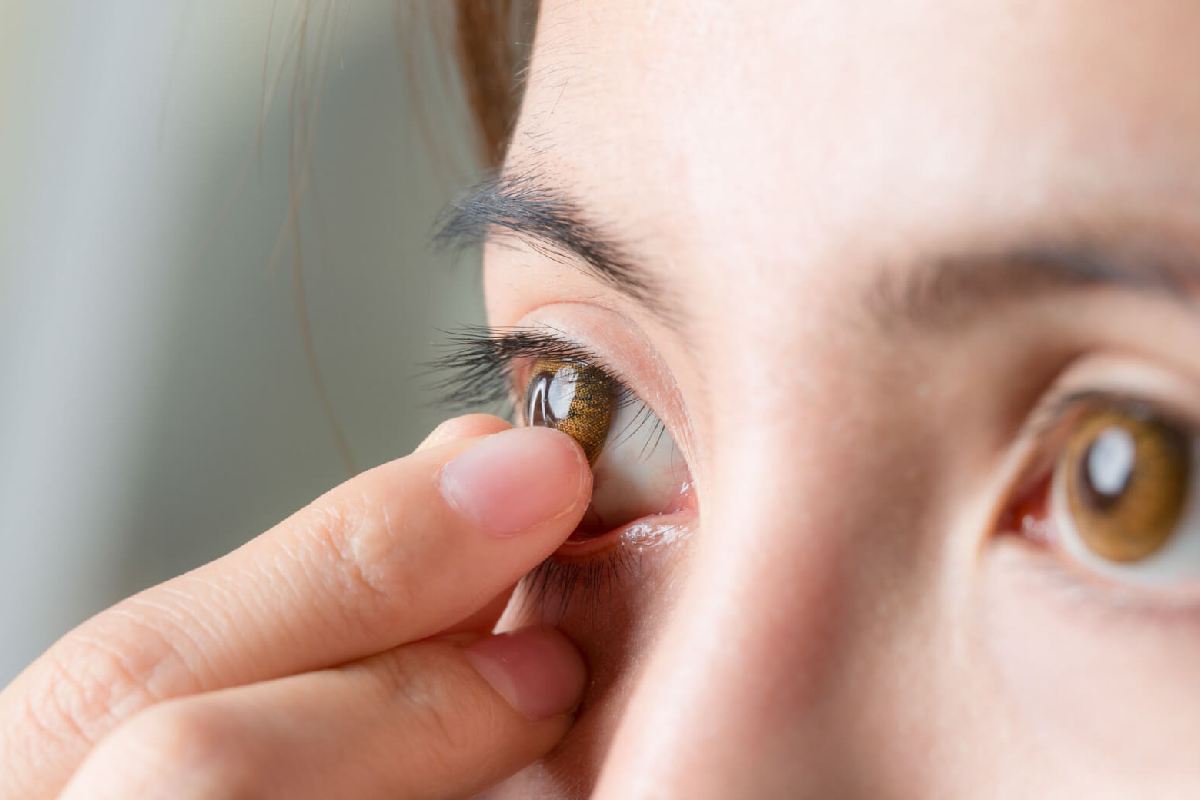How To Tell If Contact Lens Is Still in Eye
Is a contact lens still in the eye? I know it’s always scary when one loses a contact lens. But don’t worry – it is only in the eye, somewhere in the corner where you cannot see it. This article will guide you in checking whether the lens is still there. We will also describe what to do when the lens is stuck or when the lens is missing.
What are the Consequences of Losing a Lens in Your Eye?
Regarding the lens, can it be misplaced in the eye? No, it cannot. Here is why:
The conjunctiva is a thin, damp layer that covers the eye and eyelids. It anchors the eyelids to the whites of the eyes, preventing the lens from slipping behind them. A lens can only fold under the upper eyelids; it cannot slip and fall into the eye socket.
How to Check if Your Lens is Still in Your Eye
Follow these steps:
1. Look at Your Iris
You will find the colored part of the eye and the white part, and look at the area where they join. If you notice an edge of the lens there, then that is an indication that the lens is still inside.
2. Flip Your Eyelids
Using your index fingers, glide over the area above your eye to tug the upper lids over your lashes. Or, while looking down, use a mirror. It could be hidden within the contours of your eyes’ lids.
3. Rinse Your Eye
Wash your eye out with a stream of saline solution. It will help release the lens when lodged in a surface.
Contact lenses are such convenient pieces of eyewear that people with vision problems adore wearing them when performing different tasks or going out.
It remains advised that one should refrain from forcibly removing a lens that remains lodged. It can scratch your eye. The reader can spend this amount of time with the text and not be scratched.
Instead:
- Use Eye Drops
Place the lubricating drops for contact lenses. It will help the lens to shift.
- See a doctor
Let a professional remove the lens if this does not alleviate the situation. Keep children out of reach to avoid scratching their little eyes.
What if You Still Can’t Find Your Lens?
If you need help with the lens, please refer to the abovementioned steps. A lens cannot disappear into the eye socket.
Some reasons why a lens can be hard to find: Some reasons why a lens can be hard to find:
- It folded onto the white of your eye.
- It slid beneath your lids.
- Your eye is too teary and blurry.
Rinse and blink well. Check again in daylight. If still missing, please consult your eye doctor As soon as possible.
Symptoms That Require You to See a Doctor
See a doctor if:
- We have tried all methods of removing or finding the lens when it got stuck.
- Your eye appears to be inflamed, swollen, or sore.
- Vision seems blurry.
- You feel a scratch on your eye.
Let the doctor safely take out the lens. Adhere to their advice and avoid getting your lenses stuck. Protect your vision health.
Cleaning and Storing Lenses and Cases
To avoid stuck lenses:
Lens Care
- Do not wear lenses while sleeping unless advised by an eye doctor.
- Comply with all the directions for disinfecting and subsequent storage of the equipment.
- Replace as scheduled.
Case Care
Each day, it is necessary to empty the old solution.
- Rinse the case thoroughly.
- Hang it to dry upside down.
- Replace the case every three months.
If the lenses are well-cared, they do not fog or stick to one another or any surface.
In Conclusion:
Losing a lens in one’s eye is scary, but this can never happen. It can only fold onto the eye surface or remain hidden under the eyelids. After a few minutes of waiting and putting in eye drops, it will become visible and can be removed. Otherwise, doctors can retrieve stuck lenses without much of a problem.
Proper care for lenses also prevents such problems. Use it according to instructions and replace it on time.
We hope that the provided tips will help you find your lost lenses. There is no reason to panic; should you feel the need to seek medical attention, you should. The primary consideration is always caring for your eyes.


